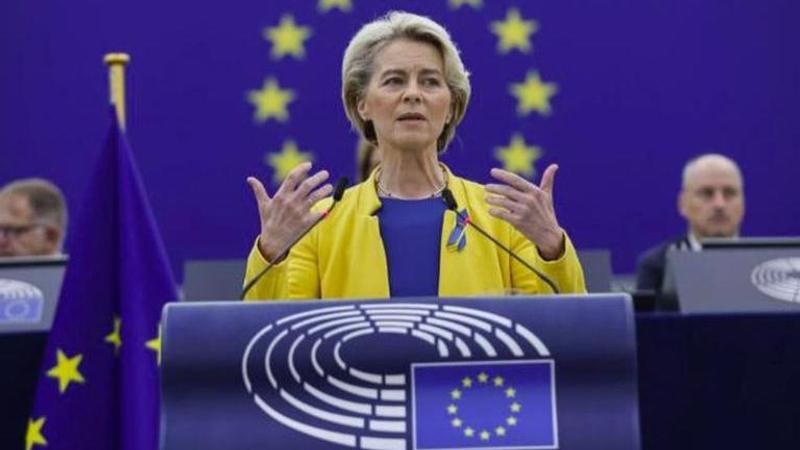Published 06:38 IST, March 25th 2023
Nuclear energy only strategic in 'specific fields' for EU's decarbonisation: Von der Leyen
In addition to strengthening resilience and competitiveness of net-zero technologies across the EU, the Act aims to make the bloc's energy system more secure.

Advertisement
European Commission President Ursula von der Leyen on Thursday said that the so-called "cutting-edge" nuclear energy under the bloc’s Net-Zero Industry Act, could be strategic for "specific fields, but not for all.” Speaking after the one-day meeting of the EU leaders, where they discussed the response to US green subsidies, von der Leyen backed the idea of nuclear power "within the limits" to support the home-made production of clean technologies such as batteries and solar panels, according to Earactiv.
“Nuclear can play a role in our decarbonisation effort – this is important," said von der Leyen.
“In our Net-Zero Industry Act, a wide set of net-zero technologies – including cutting-edge nuclear – have access to some simplified rules and incentives,” she added.
Nuclear energy touted as 'key tool' by EU
EU presented the Net-Zero Industry Act last week which listed nuclear power among the eight critical technologies that would go on to make a significant contribution to the bloc's goal of decarbonization. This initiative was formally announced by President von der Leyen as a part of the Green Deal Industrial Plan.
In addition to strengthening the resilience and competitiveness of net-zero technologies across the EU, the Act aims to make the bloc's energy system more secure and sustainable, as well as attract investments to help achieve the Union's overall strategic net-zero technologies manufacturing capacity that should approach at least 40% of the Union's deployment needs by 2030.
Nuclear energy hasn't found any mention in the EU's working paper on “strategic” green industries. “Nuclear energy is one of many tools to achieve our climate goals, to generate baseload electricity and to ensure the security of supply,” reads the declaration signed by eleven European countries in Stockholm.
While countries like Germany, Austria or Luxembourg are opposed to nuclear energy, France has been pushing for the bloc to adopt nuclear energy in Europe to hit net-zero emissions goals by 2030. French Energy Transition Minister Agnès-Pannier Runacher, at the meeting in Stockholm where the Act was signed, said that the objective of the Alliance was “to structure cooperation on the whole nuclear value chain” and provide Europe “with all the tools to reach carbon neutrality by 2050”.
EU's Act focuses on the manufacturing of clean technologies with sources of energy such as solar, wind, batteries, and heat pumps as well as the “advanced technologies to produce energy from nuclear processes with minimal waste from the fuel cycle and small modular reactors”.
In her statement, the President of the European Commission, von der Leyen, noted that the EU needs a regulatory environment that allows the bloc to scale up the clean energy transition quickly. "The Net-Zero Industry Act will do just that. It will create the best conditions for those sectors that are crucial for us to reach net zero by 2050: technologies like wind turbines, heat pumps, solar panels, renewable hydrogen as well as CO2 storage," she said at a press conference. "Demand is growing in Europe and globally, and we are acting now to make sure we can meet more of this demand with European supply," von der Leyen further stressed.
06:38 IST, March 25th 2023




